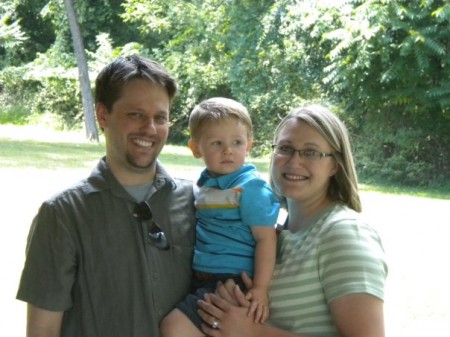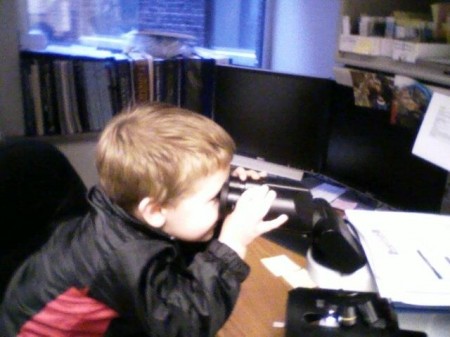
Justin, Riley, and Ashley Bishop
I am Justin Bishop, one of the chief residents and a 4th year resident in Pathology. My co-chief, Dr. Julie Karp, previously wrote an entry on what the Johns Hopkins Pathology program consists of, and I have been asked to write one on why I decided to become a pathologist. It feels a little bit like going through the interview process all over again (this was a common question in pathology residency interviews), but here it goes.
My decision to enter the field of Pathology involved many factors. My father is a physician (in internal medicine), and so I had always been attracted to the medical field. However, like many students entering the field, I had no idea what pathology was or what pathologists did (or that they even existed!). Once in medical school, I faced the “problem” of liking many fields of medicine I rotated through, but I did not love any of them enough to make them my career. I was, however, attracted to the role of the consultant, an expert called in to look at things a different way and render a diagnosis or opinion. Pathology was taught as a course in my 2nd year of medical school, but I also vaguely remembered it was a medical field containing very specialized consultants. I decided that I needed to experience it first-hand.
During my pathology elective it became clear that it was the field for me. The importance of the pathologist’s diagnosis was astonishing; the course of treatment, along with the patient’s prognosis, was entirely dependent on the impression of the pathologist, the ultimate consultant. The field struck me as very cerebral; pathologists are required to have knowledge of virtually every disease process that can affect every organ in order to diagnose them. Finally, I was struck by how vast the field was. Even though at that time I did not know what subspecialty of the field I would go into, I discovered that Pathology encompassed areas ranging from molecular diagnostics to clinical chemistry to forensic pathology. I knew that I would find my niche.
And that was basically it for me. It seems relatively simple when I see it written on my computer screen, but I must admit that the decision to become a pathologist was also in part an unscientific “gut feeling.” Quite simply, I was happiest when I was on Pathology, even if I couldn’t put my finger on why. I think my family agrees; in fact, I am trying to convince my 2-year-old son to become a pathologist as well! (See pictures.)
And that brings me to the present. I have never doubted my decision to go into pathology (even on my autopsy rotation – kidding!). On the contrary, each day in the field convinces me more and more that I made the right choice. I will be going into surgical pathology, a specialty that calls upon me to look at a variety of tissues stained different shades of pink and blue and recognize specific features and patterns. Pretty cool, huh?

Future pathologist Riley Bishop, 2, peers through his father’s microscope.
Justin Bishop, M.D.
Co-Chief Resident, Department of Pathology
This is actually assuring for me who wants to go into Path in the future. I know what you mean about the being a consultant, and having your opinion regarded. It’s cool to feel like an investigator too — excluding artifact and all that fake stuff. It’s pretty much about you I feel when working. And to think: I used to find microscopes/slides tutorials boring.